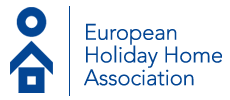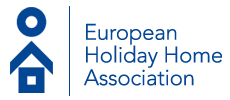Introduction
The European Holiday Home Association (EHHA) was founded in 2013 to give voice to the short term rental industry. The EHHA ranges from national private house owner associations to managers’ associations to platforms. Trade associations and member companies operate in all the European Union member countries. The core of the association is the distribution of short term rentals in private houses and apartments. The boundaries between what is private and what is commercial are blurring in the new sharing economy. In European tourism the private homeowners, rental managers, portals and listing sites provide a capacity of 20 million beds – twice the number of hotel beds. According to a PhoCusWright study 45 million adult Europeans have stayed in a short term rental accommodation in the last two years and the short term rental industry provide a yearly turnover of 80 billion euros.
The managers and platforms in the sharing economy can help to solve some of the needs for regulation through self-regulatory mechanisms, also in regard to safety in accommodations.
Comments On the Green Paper
The safety of customers when staying in tourism accommodation is an important issue including a wide range of very detailed national legislation.
In Europe the government’s publishes guides on legislation that impacts on accommodation businesses. This guides lists at number of legislations and sets of regulations that relate to the safety of customers while staying in short-term accommodations, such as holiday homes, camping, hotels etc. Governments around Europe deal with explaining the breadth of legislation that governs the safety of customers in this type of accommodation.
Considering the range and complexity of the legislation that impacts on the safety of customers in the European countries who have extensive legislative requirements, there are clear reservations to the feasibility of a European initiative to develop a standard for an all-encompassing term as “accommodation safety”.
As a response to the Green Paper, the European Holiday Home Association can support a set of principles that we believe should guide the European Commission’s approach to improving accommodation safety. These principles are as follows.
Consumer Safety is Paramount
There is agreement across the industry that the safety of customers is of primary importance – both to individual businesses and with regard to the reputation of the industry as a whole. Therefore, as a principle, we agree with moves that help to maintain and improve customer safety in accordance with identified problems.
Accommodation Safety is a Complex Are
There are three aspects of accommodation safety that make it a very complex area for developing European standards. These are:
Tourism accommodation consists of a vast array of accommodation types – from tents and yurts through to caravans, boats, holiday homes and castles.
Every country (and region within every country) has its own building vernacular and national building standards are developed on the basis those different vernaculars.
There is no one piece of legislation within each country that covers “accommodation safety”. It is a vast matrix of legislation that differs from country to country
Each Accommodation Type Needs to be Examined Separately
As “accommodation safety” is a complex and wide-ranging subject, we support the view that it is not possible to develop a single standard, or even a range of standards that cover different aspect of customer safety. Instead, we believe each accommodation type needs to be examined separately and that any standards need to be specific to a tightly defined accommodation type in order to prevent unintended impacts.
A Strong Evidence Base is Needed
We believe that, as a principle of good governance, Governments at both the National and European level should only develop new legislation or standards in response to the identification of specific problems and not simply to enhance the perception or status of an industry. Actually some safety requirements should be de-regulated.
Therefore, before pursuing any initiative to improve accommodation safety, we would need to be convinced that there is a significant problem and that the development of a European Directive was the most cost-effective means of resolving this problem.
Short term versus long term rental
Equally importantly in the short term rental market, accommodation owners frequently have a choice between commercialising their property by selling on the vacation market, or by promoting it in the private long term lettings market, on longer term arrangements. Whilst we appreciate that it is not currently part of the remit of the Green Paper to address accommodation safety in relation to non tourist accommodation, we believe that any regulations designed to ensure tourist accommodation are not framed in such a way as to act as an incentive for accommodation owners to avoid entering the tourism market.
Areas of consideration
Finally, We would wish to see the Green Paper give consideration to the following areas:
Whether a pan European framework for tourism accommodation safety for all types of tourism accommodation is achievable or required.
What is already, or may be, achieved by voluntary measures.
Why any framework should not be extended to apply to all commercialised accommodation, whether used for holiday or other purposes.
How any framework for tourism accommodation safety can be made proportionate to the type of accommodation and address the key areas of risk relevant to that type of accommodation.
To what extent any framework is supported by evidence demonstrating a need for legislation.
How any framework is, or could be, achieved by existing national and EU legislation.
The EHHA is happy to participate in a further debate on safety issues.
Link:
http://ec.europa.eu/dgs/health_consumer/dgs_consultations/ca/consultation_20141130_tourism_en.htm

